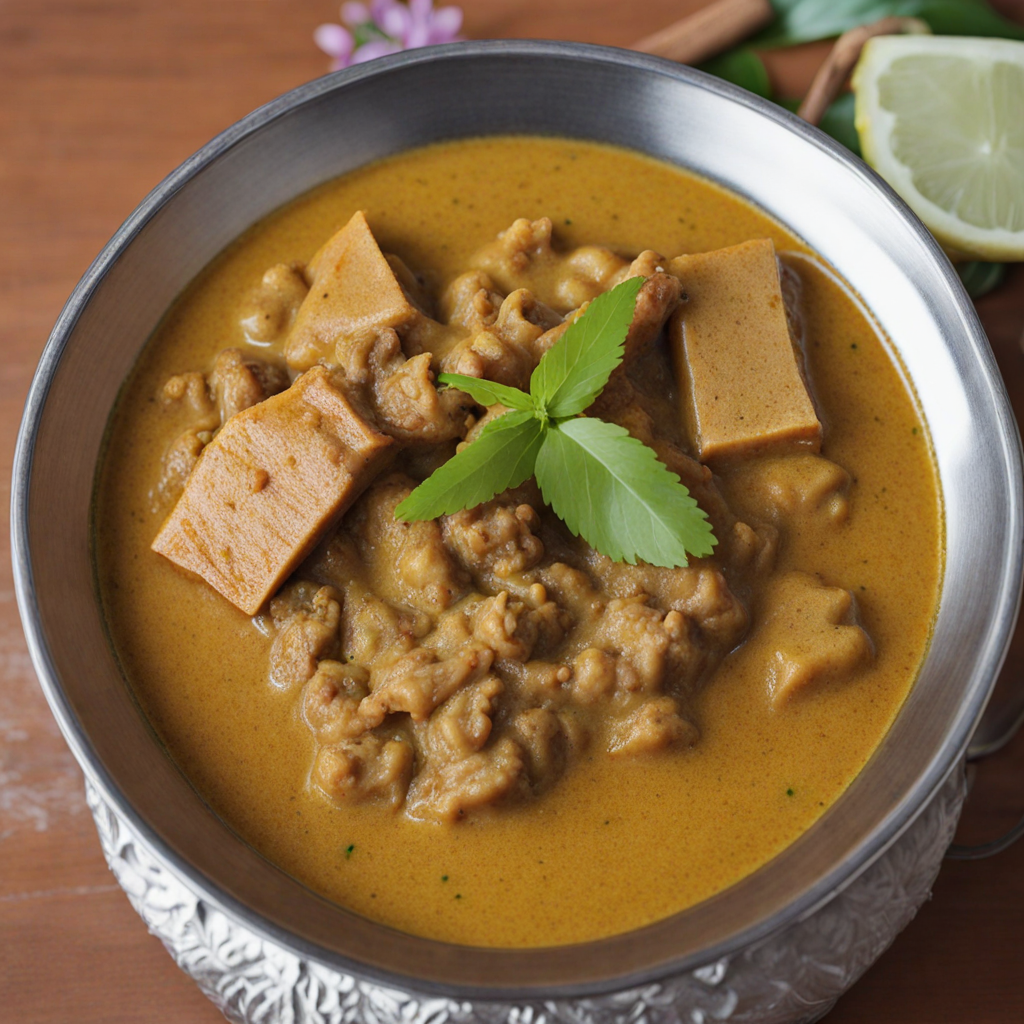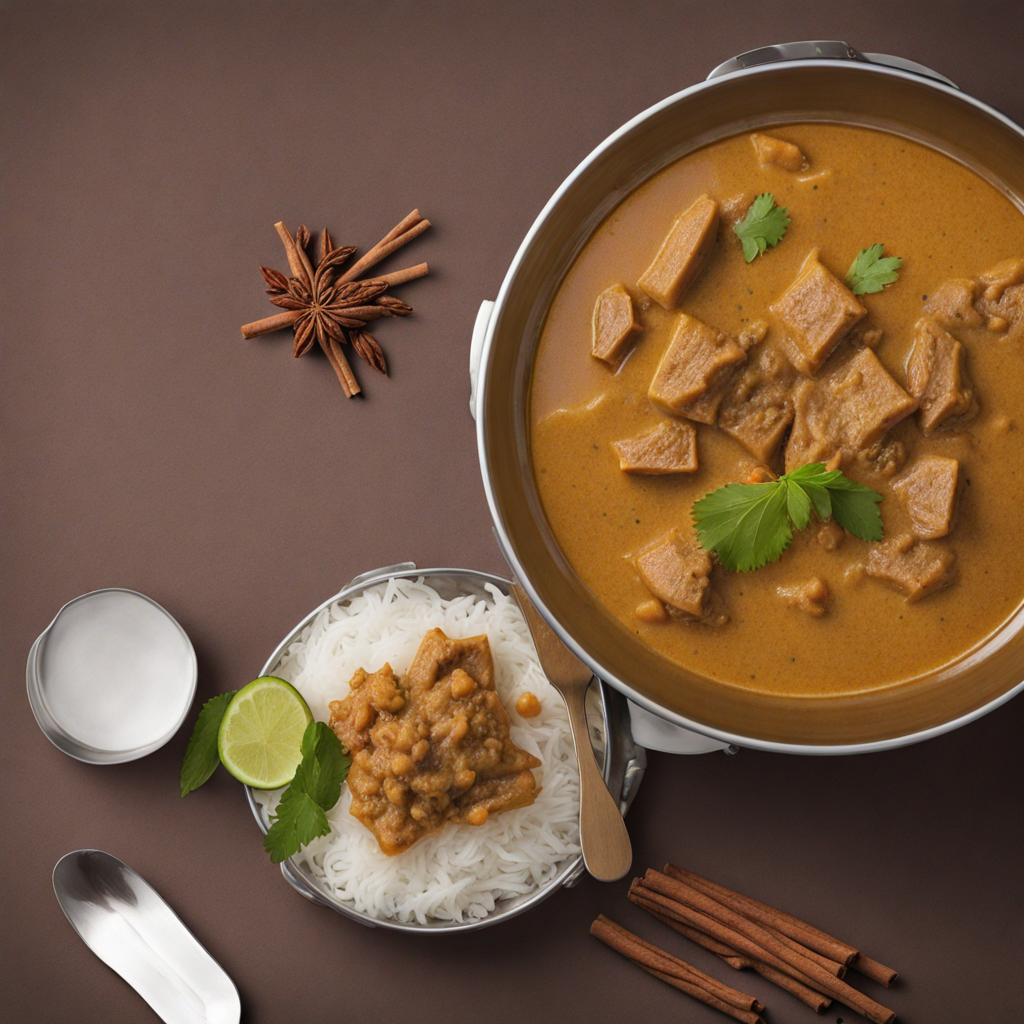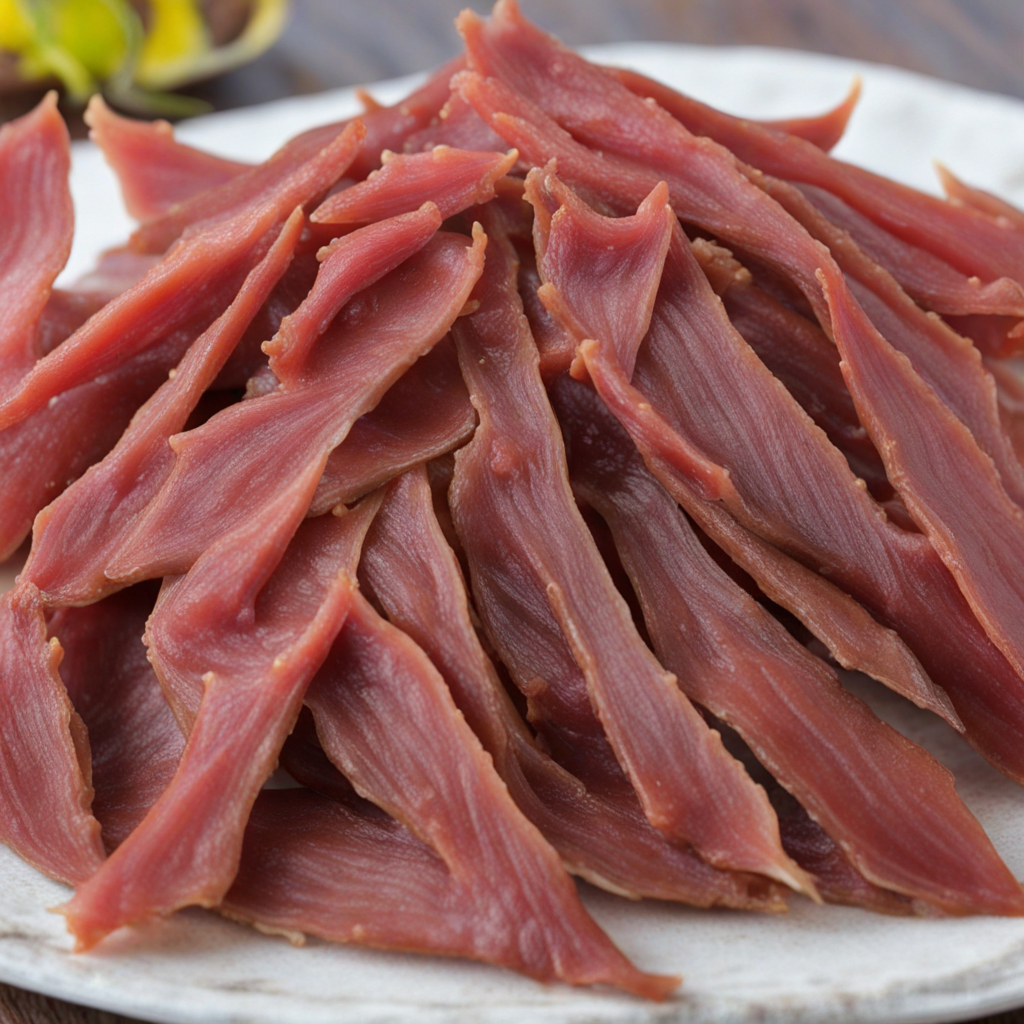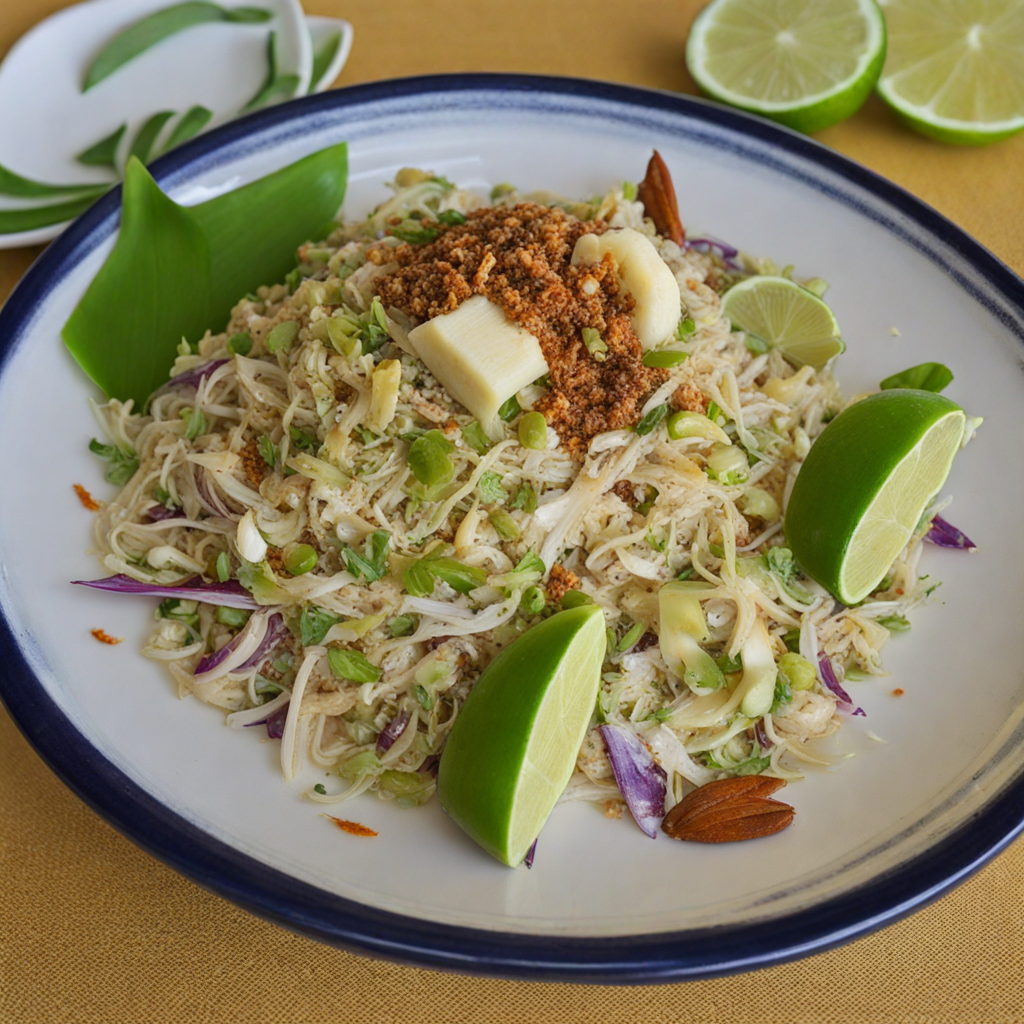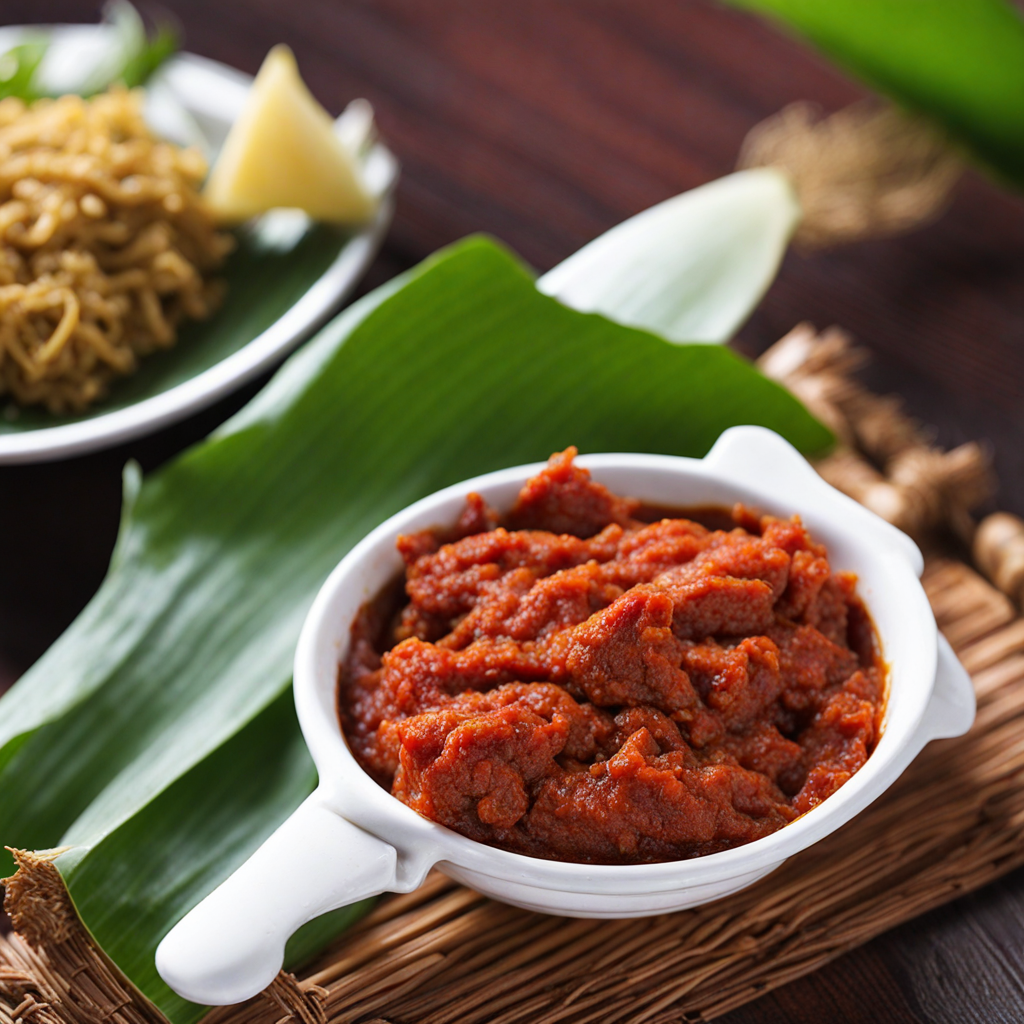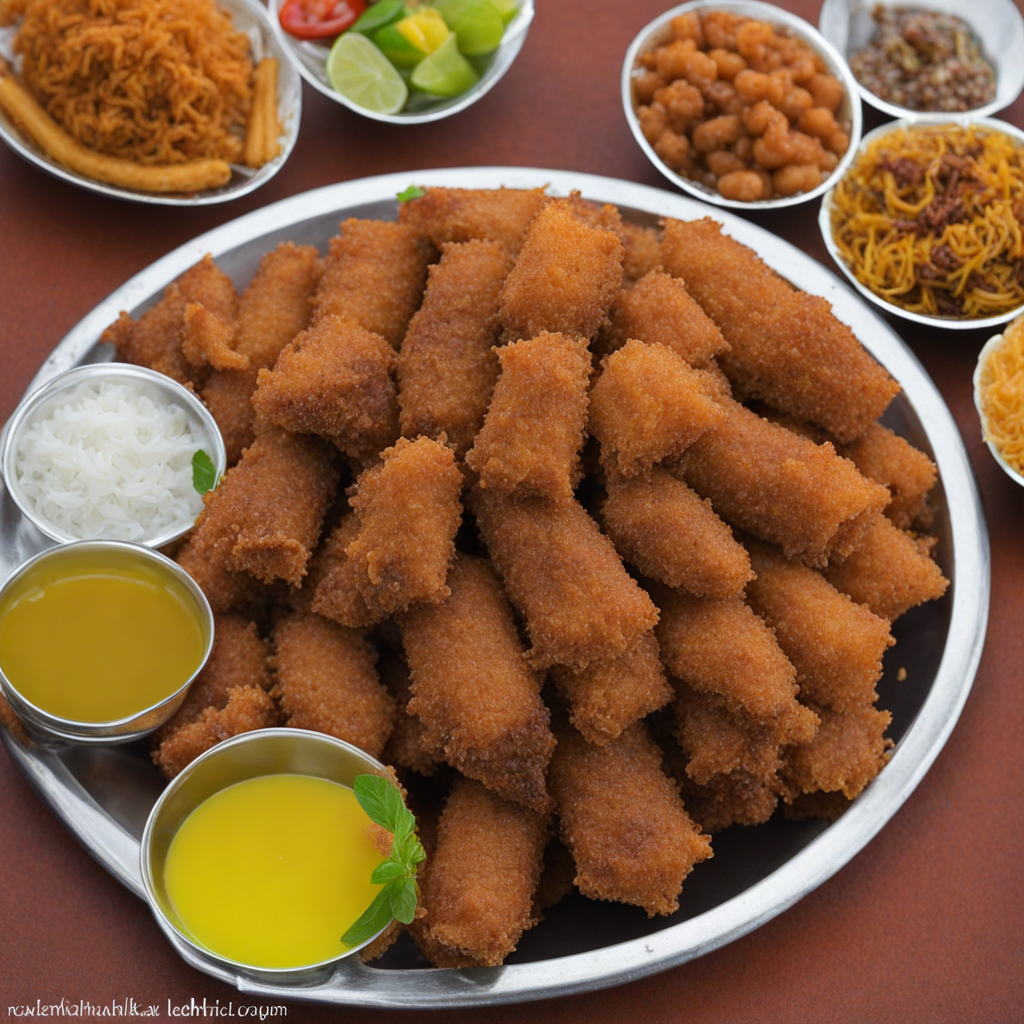Dhon Riha
Dhon Riha is a traditional Maldivian dish that exemplifies the rich culinary heritage of the Maldives, showcasing the vibrant flavors of the Indian Ocean. This aromatic fish curry is primarily made with tuna, a staple in Maldivian cuisine, which is often dried and prepared in various ways. The fish is stewed in a fragrant coconut milk base, infused with a medley of spices such as turmeric, chili, and coriander, creating a symphony of flavors that is both soothing and invigorating. The use of fresh, local ingredients contributes to its unique taste, making it a beloved dish among locals and visitors alike.
The preparation of Dhon Riha is a labor of love, with each step carefully crafted to enhance the dish's overall flavor profile. The fish is typically marinated to absorb the spice blend, then simmered slowly to allow the flavors to meld together. The addition of fresh herbs, such as curry leaves, adds a layer of freshness that balances the richness of the coconut milk. Served with steamed white rice or flatbreads, the dish is a comforting meal that brings people together, often enjoyed during family gatherings and special occasions.
How It Became This Dish
The Culinary Journey of ދޮން ރިހާ (Don Riha) from the Maldives #### Origins: The Roots of Don Riha The Maldives, an archipelago of 1,192 coral islands, is celebrated not just for its stunning natural beauty but also for its rich and diverse culinary heritage. One of the standout dishes in Maldivian cuisine is ދޮން ރިހާ (Don Riha), a flavorful fish curry that encapsulates the essence of the islands’ gastronomic traditions. The term "Don Riha" translates to "fish curry," with "Don" meaning fish, primarily referring to tuna, which is a staple in Maldivian kitchens. The history of Don Riha is deeply intertwined with the Maldivian way of life, primarily shaped by the geographic isolation of the islands and their reliance on the ocean for sustenance. The Maldives has long been known for its abundant marine life, with fishing forming the backbone of the local economy and daily sustenance. The origins of Don Riha can be traced back to the ancient practice of fishing and the preservation of fish through various cooking methods. Tuna, in particular, has been at the center of Maldivian diets for centuries, with the traditional practice of dry fish preservation (mas huni) enabling communities to store their catch for longer periods. The use of coconut, spices, and local herbs in the preparation of fish dishes further reflects the resourcefulness of the Maldivian people in making the most out of their natural surroundings. #### Cultural Significance: A Culinary Reflection of Maldivian Identity Don Riha is more than just a meal; it is emblematic of Maldivian culture and identity. The dish is often served during significant occasions such as weddings, festivals, and communal gatherings, showcasing its importance in social and cultural contexts. The preparation of Don Riha is a communal activity, often involving families coming together to share recipes, techniques, and stories, thus reinforcing familial bonds and cultural ties. The dish also highlights the Maldivian philosophy of sustainability. Traditionally, the Maldivians have maintained a close relationship with the ocean, practicing sustainable fishing methods that ensure the health of marine ecosystems. This respect for nature is reflected in the ingredients used in Don Riha, as it typically features locally caught fish and organic produce. The reliance on fresh, seasonal ingredients not only enhances the flavor of the dish but also fosters a sense of community responsibility towards environmental stewardship. Additionally, Don Riha symbolizes the Maldives' historical trade connections. The islands were historically positioned along important maritime trade routes, which facilitated the exchange of not only goods but also culinary practices. Spices from South Asia and the Middle East, such as turmeric, coriander, and chili, have found their way into the Maldivian kitchen, enriching the flavors of traditional dishes. This melding of flavors and techniques speaks to the adaptability of Maldivian cuisine, allowing it to evolve while retaining its core identity. #### Development Over Time: From Tradition to Modernity The evolution of Don Riha reflects broader changes in Maldivian society, particularly in the context of globalization and tourism. Historically, the dish was prepared using simple techniques and locally sourced ingredients. However, with the advent of tourism in the late 20th century, chefs began to experiment with the dish, introducing new flavors and presentation styles to cater to international palates. In modern Maldivian cuisine, Don Riha can be found in various forms, from traditional home-cooked versions to gourmet interpretations in upscale restaurants and resorts. Chefs have embraced the dish's versatility, incorporating elements such as coconut milk, lime, and diverse spices to create unique flavors. The use of fresh herbs and garnishes has also transformed the presentation of Don Riha, making it visually appealing and more aligned with contemporary culinary aesthetics. Moreover, the rise of culinary tourism in the Maldives has brought increased attention to traditional dishes like Don Riha. Tourists seeking authentic experiences are encouraged to engage with local chefs, participate in cooking classes, and even visit local markets. This interaction fosters a deeper appreciation for Maldivian culture and cuisine, allowing visitors to experience the rich culinary heritage firsthand. Despite these modern adaptations, the essence of Don Riha remains rooted in its traditional preparation. Home cooks still rely on time-honored techniques, such as slow-cooking the fish with a blend of spices and coconut, allowing the flavors to meld beautifully. The dish continues to be a staple in households across the Maldives, serving as a reminder of the islands’ rich history and cultural significance. #### Conclusion: The Legacy of Don Riha As the Maldives continues to navigate the complexities of globalization and environmental challenges, Don Riha stands as a testament to the resilience and adaptability of its people. The dish embodies the spirit of the Maldives—a harmonious blend of tradition and modernity, sustainability and innovation. In every bite of Don Riha, one can taste the ocean, the history, and the culture of this beautiful archipelago. It is a dish that tells a story, connecting generations through shared meals and cherished memories. Whether served at a festive gathering or enjoyed in the comfort of home, Don Riha remains a beloved symbol of Maldivian identity, celebrating the rich cultural tapestry that defines the islands and its people. As the world becomes increasingly interconnected, the legacy of Don Riha serves as a reminder of the importance of preserving culinary traditions, fostering cultural exchange, and promoting sustainable practices. In this way, the dish not only nourishes the body but also enriches the spirit, ensuring that the story of Don Riha—and the Maldives—continues to be told for generations to come.
You may like
Discover local flavors from Maldives


